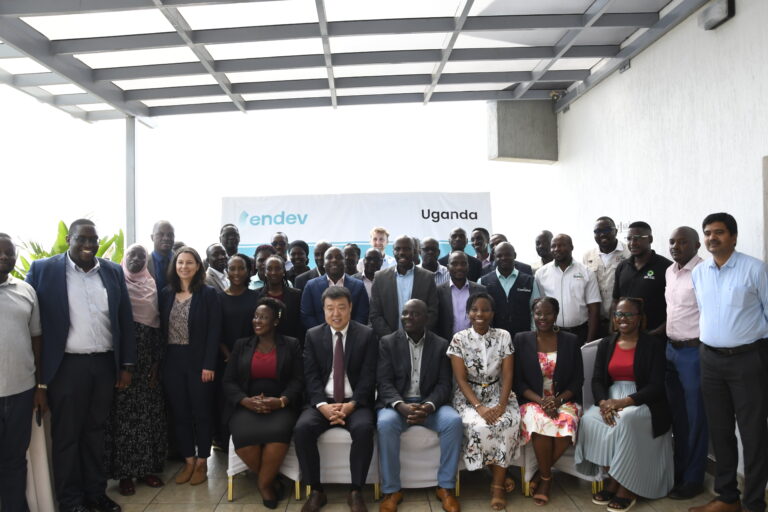Who are our UGEFA Business Advisors?
Renewable Energy Business Incubator (REBi) works to promote clean energy access in Uganda through four major focus areas. The services they provide are: nurturing renewable energy business start-ups; provision of business development services, including consultancy and advisory support as UGEFA Business Advisors; skills development, bridging the gap between the demands of the labour market and the skills of the youth; and piloting renewable energy technologies by bringing technologies working in other places to Uganda, such as biomass gasification, electricity from dry biomass. They also host the Climate Launchpad in Uganda, the world’s largest green business ideas competition.
REBi was established in 2011 as part of the Nordic Climate Facility (NCF) project “Sustainable Renewable Energy Businesses in Uganda”. The project was implemented by Makerere University Kampala (MUK) in close collaboration with The Royal Norwegian Society for Development (Norges Vel). Their mission is to build sustainable renewable energy businesses that transform lives. Claire Kagga, Manager, and Moses Angeny, Engineer, have been busy the past few months working with the first cycle of UGEFA-supported enterprises. We caught up with Claire to learn more about her experience as a UGEFA Business Advisor and within her broader work at REBi:
And, what topics do they enjoy working with businesses on?
Claire expressed how value proposition is one of the topics she enjoys working on the most: “many entrepreneurs focus on getting the product right”, but it is also important to focus on the market and the value that the product adds. Claire also mentions how crucial is to create the market. “Entrepreneurs have doubts about how to get to the market”, she explains. Her objective is to first help businesses to understand the central need to identify early on the value that the product adds to markets.
Another topic that Claire enjoys working with businesses on is financial management. She explains how usually green entrepreneurs are passionate about the technology or product they are providing, and take a lot of time to develop it. However, it is common for many businesses forget to monitor their financial performance, which Claire finds key. This financial analysis also shows if the business is growing or not.
In addition to those topics, impact monitoring is also very important. Claire expresses how articulating the impacts is sometimes difficult for the businesses with whom she works. For example, finding the numbers for the emissions reduced by a clean fuel.

How do they support green SMEs in particular…?
REBi contributes to preserving the environment and combatting climate change by ensuring support to green entrepreneurs, enabling communities to benefit from the businesses’ green products and services.
Previously, there was very little focus on green businesses because of a common thinking that these types of businesses are expensive to start-up, partly due to the associated costs of raising awareness among prospective customers and the broader value chain. So, for REBi, focusing on green entrepreneurship means promoting and growing more green businesses.
It is also important to REBi to help people to understand that it is possible to be profitable as a green business. “If you do your business right, if you get the market and value right, your finances in order, then you are able to run a profitable business – whether it is a green business or not”, explains Claire.
In this regard, the collaboration with UGEFA boosts their efforts. “We are really happy with UGEFA because finding finances for these green enterprises has really been a hiccup for many players in the sector. With a programme like UGEFA, I see us doing a lot more to make financing institutions understand that a green business can be profitable”, mentions Claire.
What more can we do together?
When we increase the number of green products and services in markets, we build businesses and create jobs – direct and indirect –, meaning that Ugandans earn an income. More broadly speaking about economic benefits, these businesses contribute to the economic development of Uganda by paying taxes and facilitating sustainable gains in GDP. A commitment to expanding the role of green businesses protects the environment from plastics, chemicals, and the degradation of other natural resources. And socially, when various people and organisations get involved, it is a win-win situation for the companies and the communities. SMEs have a very big role to play in the green sector.
The more SMEs we build, says Claire, the more awareness we create for people to know the value of “going green”. The area of awareness raising has been slow. However, when the government takes a lead role in promoting green production and consumption, it becomes easier for people to respond. For example, solar energy is the first that comes to mind when talking about renewable energies in Uganda, despite various other examples of renewable energy, such as hydropower. That is a direct result of strong promotional efforts around solar energy and widespread dissemination of solar panels, even to rural areas.
Therefore, when implementing programmes like UGEFA, it is key to have a component of market creation where people talk about awareness of the product or service. “Since UGEFA covers all four regions in Uganda, I see impacts being created in every region”, explains Claire, which means that at least people will know what “green” is at the end of the day.
So, how would you like to collaborate?
Contact us via email with any thoughts at info@ugefa.eu, and keep the conversation going with REBi by following their activities here…
Website: https://www.energyincubator.org/
Twitter: https://twitter.com/REBiLimited
LinkedIn: https://www.linkedin.com/company/renewable-energy-incubator/
Facebook: https://www.facebook.com/energy.incubator1
